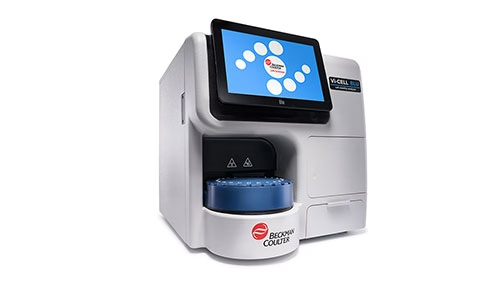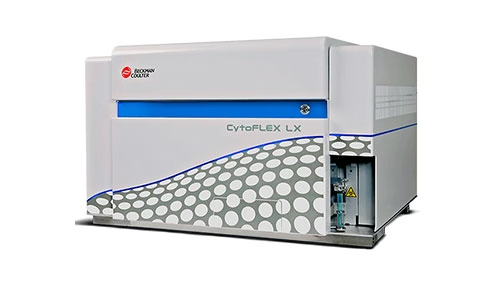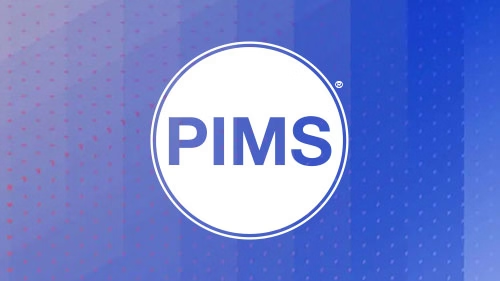Autologous CAR-T Cell Therapy

Autologous CAR-T Cell Therapy Manufacturing
Why It Matters
Unlocking the Healing Potential
Unlocking the healing potential of Autologous CAR-T cell therapy marks a significant leap forward for personalized medicine, offering a beacon of hope for patients diagnosed with certain types of cancer. By harnessing the patient's immune system to target and destroy cancer cells, CAR-T therapy represents a significant advancement in our ability to combat these malignancies. This approach's importance lies in its potential to improve patient survival rates and quality of life. It embodies cutting-edge biomedical innovation and patient-specific treatment protocols to lead to breakthroughs in curing diseases once deemed incurable. Through meticulous research, development and application, unlocking the healing potential of Autologous CAR-T therapy is a crucial endeavor in the ongoing fight against cancer.
Select the Right Tools and Partner
Developing and manufacturing Autologous CAR-T cell therapies require high consistency in process and quality. Selecting the right tools and partnering with scientific experts is essential to achieve this.
The Life Sciences companies of Danaher Corporation provide a vast array of solutions and technologies to aid in developing and producing Autologous CAR-T cell therapies. Our offerings cater from the discovery stage to clinical trials. We provide cutting-edge workflow automation, analytical solutions and enterprise-level data management solutions that can take your program to new heights. Our solutions are designed to empower you and help you achieve your goals quickly and efficiently.
Danaher In The News
Danaher-University of Pennsylvania Beacon for Cell Therapy Innovation
Danaher Corporation has partnered with the University of Pennsylvania's Center for Cellular Immunotherapies, led by CAR-T pioneer Dr. Carl June. This partnership aims to develop advanced technologies that can improve the consistency of clinical outcomes for patients and overcome manufacturing bottlenecks in the delivery of next-generation engineered cell therapies like Autologous CAR-T. These therapies have immense potential to improve the treatment landscape for patients with limited options. However, the impact of CAR-T cell therapies on human health is limited by the inability to scale manufacturing processes in a cost- and time-effective way. This Beacon for Cell Therapy Innovation will focus on developing innovative product solutions that address bottlenecks affecting cell therapy manufacturing yield and quality.
The Process
One lab, three paths to faster outcomes
Product Spotlight
Vi-CELL BLU Cell Viability Analyzer
The faster Vi-CELL BLU cell analyzers automates the Trypan Blue Dye Exclusion method for cell viability analysis.
The Vi-CELL BLU expedites processing by now having the option to use a 24-position sample carousel or a 96 well plate for sample delivery.


CytoFLEX Flow Cytometer
The CytoFLEX Flow Cytometer, the first introduction to the CytoFLEX Platform, provides the performance you need in an easy to use system allowing you to focus on the science, not the instrumentation.
Its superior sensitivity and resolution throughout all configurations give it the edge over other cytometry systems four times its size. All instruments in the platform utilize CytExpert for CytoFLEX Acquisition and Analysis Software.


Skyland PIMS
PIMS (Process Information Management System) is 21 CFR Part-11 compliant, cloud-native software that creates a contextualized data backbone of critical manufacturing process and quality data across products and batches.

FAQs
What role do workflow automation and analytical solutions play in CAR-T cell therapy development?
Workflow automation and analytical solutions are indispensable in CAR-T cell therapy development. Automation streamlines and standardizes workflows, ensuring consistency and reliability in procedures crucial for CAR-T therapy. Automating tasks such as cell culture, media preparation and sample analysis can help laboratories achieve higher throughput and reduce variability, which is essential for reproducibility in research and clinical applications.
Analytical tools complement automation by providing rapid and precise insights into cellular behavior, identity, safety and therapeutic efficacy. These tools accelerate data acquisition and analysis, enabling researchers to make informed decisions faster. Scalable analytical solutions further support the scalability of CAR-T therapies, from early-stage research to clinical trials and commercial production, by optimizing processes. The Life Sciences companies of Danaher Corporation offer a wide range of solutions and technologies to support the development and production of Autologous CAR-T cell therapies, spanning from discovery through clinical trials. Offerings include state-of-the-art workflow automation, analytical solutions and enterprise-level data management solutions aimed at empowering researchers.
What technologies are used to develop and manufacture Autologous CAR-T cell therapies?
Technologies used in the development and manufacturing of autologous CAR-T cell therapies include:
- Gene editing tools: CRISPR/Cas9, plasmids and other gene editing technologies are employed for precise modification of T cells to express chimeric antigen receptors (CARs).
- Cell culture and expansion systems: Bioreactors and closed-system culture platforms facilitate the growth and expansion of genetically modified T cells under controlled conditions.
- Vector systems: Viral vectors (e.g., lentivirus, retrovirus) deliver CAR constructs into T cells efficiently.
- Quality control and analytics: Advanced analytical tools such as flow cytometry, next-generation sequencing and cytokine release assays are essential for assessing CAR-T cell characteristics, potency and safety profiles.
- Process automation: Automated systems for cell processing, media preparation and cryopreservation ensure consistency and scalability in manufacturing.
These technologies collectively support the development of personalized CAR-T cell therapies by enabling efficient gene modification, robust cell expansion, rigorous quality control and streamlined manufacturing processes.
How is the quality of cell therapies controlled during production?
During the production of CAR-T cell therapies, rigorous quality control (QC) measures are essential to ensure the final product's safety, efficacy and consistency before it is released for patient infusion. Key aspects of quality control include:
- Identity: Flow cytometry-based assays are employed to confirm the identity of CAR-T cells by assessing specific surface markers indicative of the modified T cell population.
- Potency: The potency of CAR-T cells, which reflects their ability to recognize and eliminate target cells, is evaluated through functional assays that measure cytokine release or cytotoxicity against target antigens.
- Purity: Purity assessments ensure the CAR-T cell product is free from contaminating cells or materials that could compromise safety or efficacy.
- Dose: The intended dose of CAR-T cells per patient is verified to ensure consistency and adherence to prescribed treatment protocols.
- Safety: Various safety parameters, including sterility, absence of microbial contamination and endotoxin levels, are rigorously tested to mitigate the risk of adverse effects in patients.
Technological tools play a critical role in conducting these QC tests efficiently and accurately:
- Automated workstations: Systems like Biomek i-Series Automated Workstation are utilized for sample preparation, ensuring reproducibility and compliance with regulatory standards (e.g., 21 CFR Part 11).
- Flow cytometry: Instruments such as CytoFLEX Flow Cytometer with Kaluza C analysis software are used for identity confirmation and other cellular analyses.
- Viability assessment: Vi-CELL BLU Cell Viability Analyzer is employed to determine cell viability, a critical factor in assessing the health and functionality of CAR-T cells.
- Environmental monitoring: Instruments like MET ONE 3400+ Series Particle Counter and Anatel PAT700 Total Organic Carbon Analyzer ensure compliance with good manufacturing practices (GMP) by monitoring airborne particles and organic carbon levels in the production environment.
What is the importance of selecting the right tools and partners for CAR-T cell therapies?
Selecting the right tools and partners in cell therapies is crucial for success. The Life Sciences companies of Danaher Corporation play a pivotal role in cell therapy development and manufacturing, ensuring capabilities such as gene editing, cell culture, analytics and quality control are effectively met. Equally important is partnering with expert organizations who bring extensive experience in navigating regulatory landscapes and optimizing processes for maximum efficiency and compliance. These partnerships contribute to maintaining high standards of quality and consistency in producing therapies that meet rigorous safety and efficacy criteria. Furthermore, selecting innovative and adaptable partners and tools allows for staying at the forefront of scientific advancements, potentially enhancing therapeutic outcomes and reducing costs. Ultimately, the right choices in tools and partnerships streamline development timelines and contribute significantly to the successful delivery of safe and effective CAR-T cell therapies.
How do preclinical and clinical development stages differ in cell therapy manufacturing?
Preclinical and clinical development stages in cell therapy manufacturing differ significantly in focus and execution. Preclinical stages primarily involve laboratory and animal studies to establish proof-of-concept, evaluate safety and optimize manufacturing processes on a small scale. These stages are crucial for gathering preliminary data before progressing to human trials. In contrast, clinical development shifts focus to conducting rigorous clinical trials in human subjects to assess safety, efficacy, dosing and potential adverse effects under controlled conditions. Regulatory oversight increases substantially during clinical stages, requiring adherence to stringent guidelines and comprehensive data generation to support market approval. The transition from preclinical to clinical development marks a critical progression towards validating the therapy's safety and efficacy for broader patient use. The Life Sciences companies of Danaher Corporation provide an extensive array of solutions, technologies and services essential for preclinical and clinical development of CAR-T cell therapies.